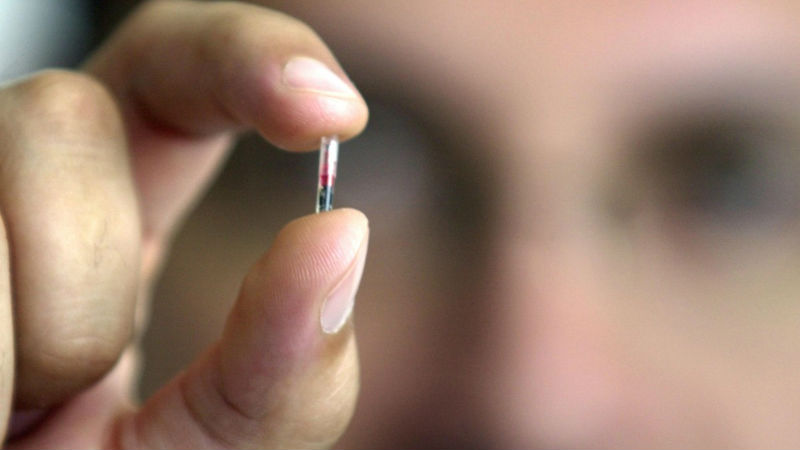This could sound like a trumpet of conspiracy theories, but it is not. It is real that a company in Wisconsin will soon begin installing microchips in employees, even as it insists that the chips are not going to come with any GPS Tracking functionality.
With this development, the company, Three Square Market, which is into designing software for break room markets could as well become the first in the US to offer microchip implants to its employees.
As indicated in a press release, the program will begin implementation on August 1 and would be optional for employees.
That said, it is expected by the company that as much as 50 staff members would be voluntarily chipped with the technology. that is no larger than a small grain of rice.

The chip would be injected between their thumb and index finger. Once that is done, any task involving RFID technology such as swiping into the office building and paying for food in the cafeteria can be accomplished with a wave of the hand.
I know you would think that since it is voluntary a lot of employees would run away from it. On the contrary, so far, more than 50 of the company’s 80 employees are ready to have it in their bodies.
“In the next five to 10 years, this is going to be something that isn’t scoffed at so much or is more normal. So I like to jump on the bandwagon with these kinds of things early, just to say that I have it,” said a software engineer, Sam Bengtson.
Although a little nervous about implanting anything in her body, “I think it’s pretty exciting to be part of something new like this,” the company’s sales director, Melissa Timmins said.
“I know down the road, it’s going to be the next big thing, and we’re on the cutting edge of it,” she added.
As earlier stated, the program is the first of its kind in the US, even though it has already been done at a Swedish company, Epicenter.
The questions this is raising is as regards the health and privacy of those deciding to have the chip in their bodies.
Another potential problem with this is that it could later be used for different things such as tracking the activities of employees including lunch breaks rather than just the payment system it was designed for, even without the permission of employees, or at least, their knowledge.
“Once they are implanted, it’s very hard to predict or stop a future widening of their usage,” Dr. Acquisti who is a professor of information technology and public policy at Carnegie Mellon University’s Heinz College said.
Nevertheless, the chief executive of Three Square emphasized that the chip’s capabilities are very limited. “Your cellphone does 100 times more reporting of data than does an RFID chip,” he said.
See Also: Scientists In Germany Just Switched On The World’s Largest “Artificial Sun”
This, however, doesn’t take off the health risk. This is even as the FDA has approved it. This is because according to the F.D.A., the implantation site may become infected, or the chip may migrate elsewhere in the body in rare cases.
Still, there are many in the company who do not see any need to worry since it has been approved by the FDA, and it is removable.














